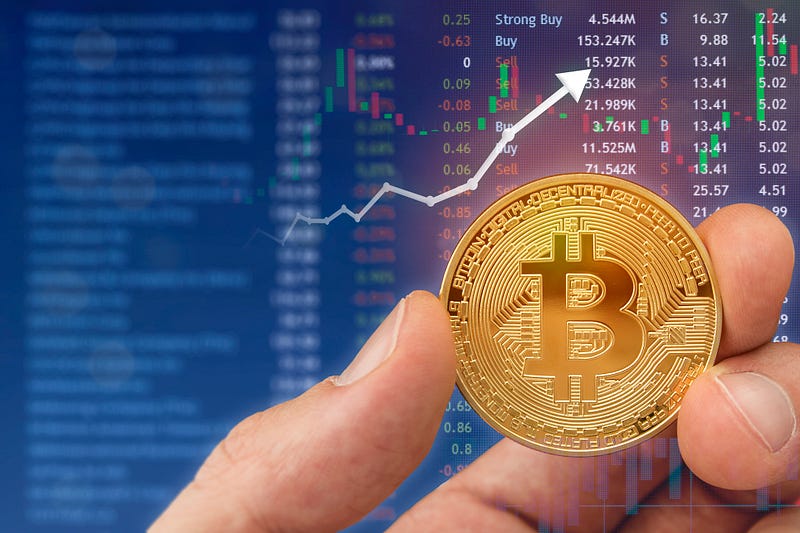Adventures in Bitcoin
Tales from the Bleeding Edge
A couple of months ago, with Bitcoin hovering around £8,000 per coin, I took advice from James Altucher and tested the Bitcoin shark pool. James recommends Coinbase, amongst other wallets, and I found it very easy to set up and bought some coins quickly on my credit card. I had an equal split between Bitcoin, Litecoin and Ethereum. As Bitcoin has skyrocketed in recent days, I moved my Ethereum and Litecoin into Bitcoin, but even this proved harder than expected. On many platforms, you cannot simply ‘sell’ Ethereum for Bitcoin, for example, you first have to convert it into some real or ‘fiat’ currency like British pounds sterling (GBP), EUR or even USD.
As the price of Bitcoin shot up close to £15,000 today, I decided to address a concern I had right from the start. One day, and it might be far into the future, I would need to convert my Bitcoin back into GBP and I also knew, from looking briefly at Coinbase, that this was not going to be easy. When I signed up, Coinbase did not even support GBP transactions. Now they do, but only as part of the SEPA system for European banks. My own everyday bank account does not allow SEPA payments, so I knew there was trouble brewing.
And this was no idle test: although I plan to invest in Bitcoin for the long term, the last week has shown me that there might come a day when I need to sell quickly to recognise the best profit. Coinbase had not only proven to be difficult to work with GBP UK bank accounts, but their system has proven unreliable under the strain of recent days as well. I needed a proper Bitcoin exchange, preferably based in the UK or Europe, that I could top up or withdraw easily from a UK bank account. Coinbase just isn’t that solution.
My challenge was simple, so it seemed: I simply had to convert by Bitcoin back into GBP. How hard could it be? Bearing in mind it took literally seconds to buy some Bitcoin using my credit card in the first place.
Given that I don’t have a EUR bank account, and that my GBP account won’t make a SEPA transaction, I could not use Coinbase with the accounts I currently had access to. Having just read about the amazing new Revolut smartphone bank account, I signed up. They were due to start allowing Bitcoin exchanges within days, and they offered a proper UK bank account (one with a sort code and 8-digit bank account number, without having to worry about IBAN or SWIFT). However, because they don’t offer true IBAN accounts, I then found they wouldn’t play nicely with Coinbase.
Back to the drawing board: I needed a proper SEPA-enabled or EUR bank account, but I didn’t want to actually have to find a bank and open an old school account, which could take over a week and require all kinds of identification processes. Step forwards: Transferwise.
The Transferwise ‘borderless’ bank account was exactly what I needed and thankfully easy and quick to set up. I created a new account online within seconds, and quickly moved to the process that had taken ages with Coinbase: identity verification. Transferwise promised they would review my uploaded passport in four working days but, incredibly, they had done this within the hour on a Sunday morning. Very impressive, and I then quickly created a GBP and EUR bank account with full IBAN/BIC codes ready for action.
The only thing that took longer than it should have done was depositing some EUR into the account from my GBP bank debit card. This being a Sunday, the transaction was not processed on the same day.
Then things went wrong again. The transaction was eventually cleared on Monday night, and I excitedly logged in to verify my Transferwise EUR account with Coinbase. Except it didn’t work. Transferwise specifically blocked me from sending the small deposit to Coinbase because it is a bitcoin platform.

That’s right, folks, you can send money to anyone you want using Transferwise as long as you’re not trying to trade Bitcoin!
Which, of course, means that my early glee was misplaced. Transferwise is absolutely brilliant for everyone who is not in my position. And now they’re sitting on EUR 10 in my name that I have no use for, except to return it back to my own bank. A complete waste of 24 hours.
As things stand, I still have my Bitcoin and I have no idea how to get the money out. I could open another UK bank account, although not Nationwide or Metro Bank, as Coinbase doesn’t support Nationwide and Metro Bank, you may remember, can’t do SEPA yet.
So although it is very, very easy to buy Bitcoin with nothing more than your normal credit card, things can easily go awry when it comes to turning your Bitcoin back into your real local currency, especially in Europe, as so many of the well-known wallet systems are essentially American. And I’m a relatively sophisticated customer, with banking experience.
With hindsight, I don’t believe Coinbase is sufficiently robust for the mainstream yet, and it doesn’t allow UK GBP payments easily enough. For me, now that Revolut offers Bitcoin transactions, it should be the no-brain Bitcoin wallet of choice for UK residents. Yes, the Bitcoin features are only available to Premium members, or those who can persuade three friends to sign up, but Bitcoin is coming for all customers in the future, and so many other providers set a minimum purchase of $200 or more, whereas Revolut does not.
Revolut also offer a proper UK current account and debit card, plus loads of other travel extras like travel insurance and airport loung access, in addition to all the usual foreign exchange benefits, making them absolutely the best choice. For European and UK customers, they are really leading the way in terms of modern banking features, far more so even than ‘challenger’ high street banks like Metro Bank.
If I had started with Revolut from day one, I would not have needed either the Coinbase account, or the Transferwise account, which totally failed me on this occasion.
Also, bear in mind that this entire process took nearly a week of educating myself about what Coinbase cannot do, and then figuring out a solution that would work from the UK. If your bank supports SEPA, and most do, then you might find Coinbase is a viable solution. But I remain unhappy with several aspects of their app and website, which have clearly not been thoroughly stress tested for the day when Bitcoin doubles in value. That was always going to happen, and it is a sign of naivety that they could not properly cope with it. They even had to email customers with tips on how to avoid peak-time blues. Any wobble like that in a currency exchange service would not be allowed on the high street, and it would not be allowed in any other UK-regulated company either.
These are my own very real, but personal, experiences with Bitcoin. Do you have any tips to share or shortcuts? Please do share in the comments. Perhaps you have had smoother experiences with other trading platforms?
In summary, given the amazing gains that Bitcoin continues to make, all of this research and fiddling around is still worth it. Yes, I have lost a few pounds in unnecessary conversion fees that I could have avoided, but I am still up more than 100% on my original stake in less than two months. That really is money for nothing.





